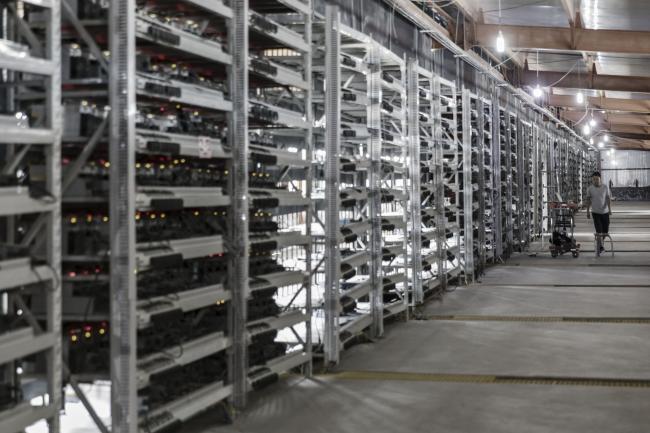(Bloomberg) -- Bitcoin mining is so profitable in China that the cryptocurrency could fall by half and miners would still make money, according to Bloomberg New Energy Finance.
Even at the country’s highest regulated electricity tariff, miners can profit from bitcoin as long as it’s worth more than $6,925, BNEF analysts including Sophie Lu wrote in a report Wednesday. The digital currency currently trades around $14,200.
Bitcoin’s 1,400 percent surge last year saw greater demand for electricity to run the computers used in the cryptocurrency’s mining. About three-quarters of those machines ended up in China, the world’s largest electricity user, which is now seeking to discourage the practice given a surge in power use in some provinces.
“Bitcoin mining under the current price is likely to be profitable under any electricity price regime in China,” Lu wrote.
Cryptocurrency power use is facing more scrutiny, particularly in China, which is concerned miners are taking advantage of low electricity prices. Digital currency transactions require energy-intensive computer networks, with the industry now using as much power as 3.4 million U.S. households, according to Digiconomist Bitcoin Energy Consumption Index. China is said to be planning to limit power use by miners, which are starting to look elsewhere.
Rising Demand
Electricity demand for bitcoin mining rose to about 20.5 terawatt-hours a year by the end of 2017, according to BNEF. That equates to more than half the 38 terawatt-hours of electricity used annually by the world’s biggest miner, BHP Billiton (LON:BLT) Ltd. -- or a 10th of the electricity needed to power South Africa.
In China, miners used 15.4 terawatt hours, which is just a blip in the country’s massive power industry. Even though it plays host to the world’s biggest community of bitcoin miners, they only used 0.2 percent of the country’s annual electricity production, according to the report.
It’s difficult to predict how much power will be used to mine bitcoin in the future, Lu wrote, as it depends on how efficient the computers running the complex calculations needed for mining become and how many additional computers will be used in the process. Miners earn bitcoin-denominated rewards for performing the complex calculations needed to confirm transactions in the cryptocurrency.
While mining is profitable at the highest regulated electricity price of $0.13 per kilowatt-hour in China, many companies can take advantage of overcapacity in the power-generating sector to negotiate rates as low as $0.03, Lu wrote. Breakevens are achievable at $3,869 at those power prices, Lu said.
And if China does make good on its plan to restrict bitcoin miners’ power use, they could move to new regions quite easily, Lu wrote. The computers used in mining aren’t expected to last more than two years and the other equipment involved is relatively cheap.
Read more here about how China is clamping down on bitcoin.
“The overall threat to the sustainability of the global bitcoin network may not be so drastic,” Lu wrote.
